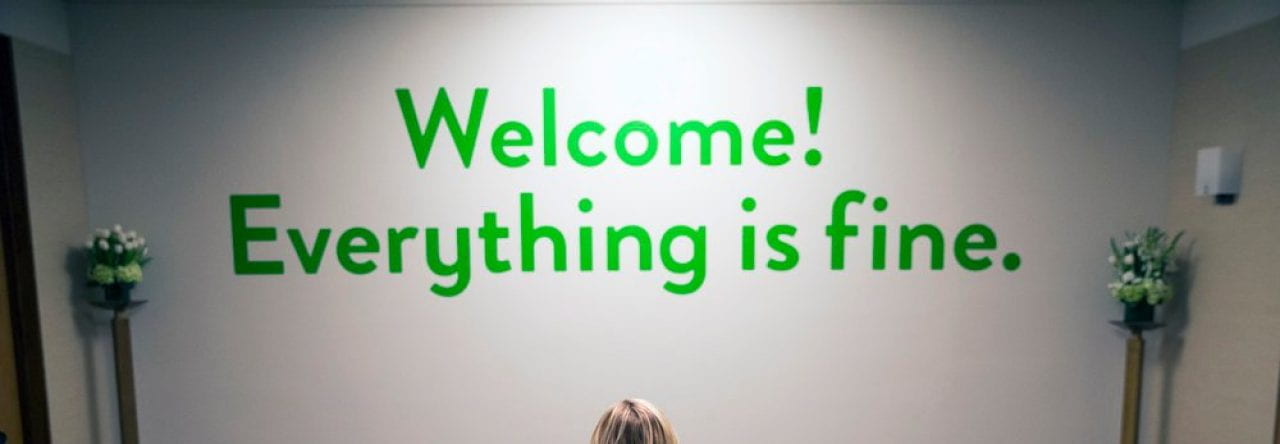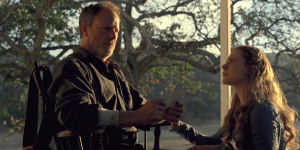Dana Baratta wrote most of Jessica Jones season 1, but today I am going to analyze just episode 5. Baratta is known for writing several other shows such as The Secret Circle and Red Widow, but Jessica Jones is definitely what she is most famous for. She is responsible for most of the dialogue in Jessica Jones which is one of the most important aspects of the show.
The dialogue in Jessica Jones helps define the show and make it the great show that it is. Whether it be dramatic pauses or heated arguments, the dialogue helps add to the characters and plot to make the show amazing. Everything each character says fits in perfectly with their persona which helps make every conversation impacting and meaningful.
Most of the dialogue this episode is between different characters, but there are several points in the episode where there is no dialogue at all for a few minutes over a scene. Silence is used in this episode to make certain scenes more intense or scary for the viewers. These scenes are usually when Jessica is spying on someone or if there is a fight or chase. There is usually music or background noise during these scenes. This leaves the viewers to react in their own way to this scene and add to its suspense.

Jessica Jones Scene
During this scene, Jessica follows her neighbor Malcolm while he meets with her enemy Kilgrave. This is all done without dialogue, which makes certain parts awkward and others intense.
There are several flashbacks in this episode which gives certain characters more character development and lets the viewers know why some things are happening. Flashbacks this episode are primarily used to give viewers more context on Jessica’s past and add to her character.
Overall, the dialogue in this episode of Jessica Jones is mainly just people talking to each other with several flashbacks to give context. There are no voiceovers this episode, and there is rarely ever one in other episodes. Jessica Jones relies a lot on silence and the show wouldn’t be what it is today without it. This show relies solely on conversation dialogue and silence to keep it going and its viewers engaged.



